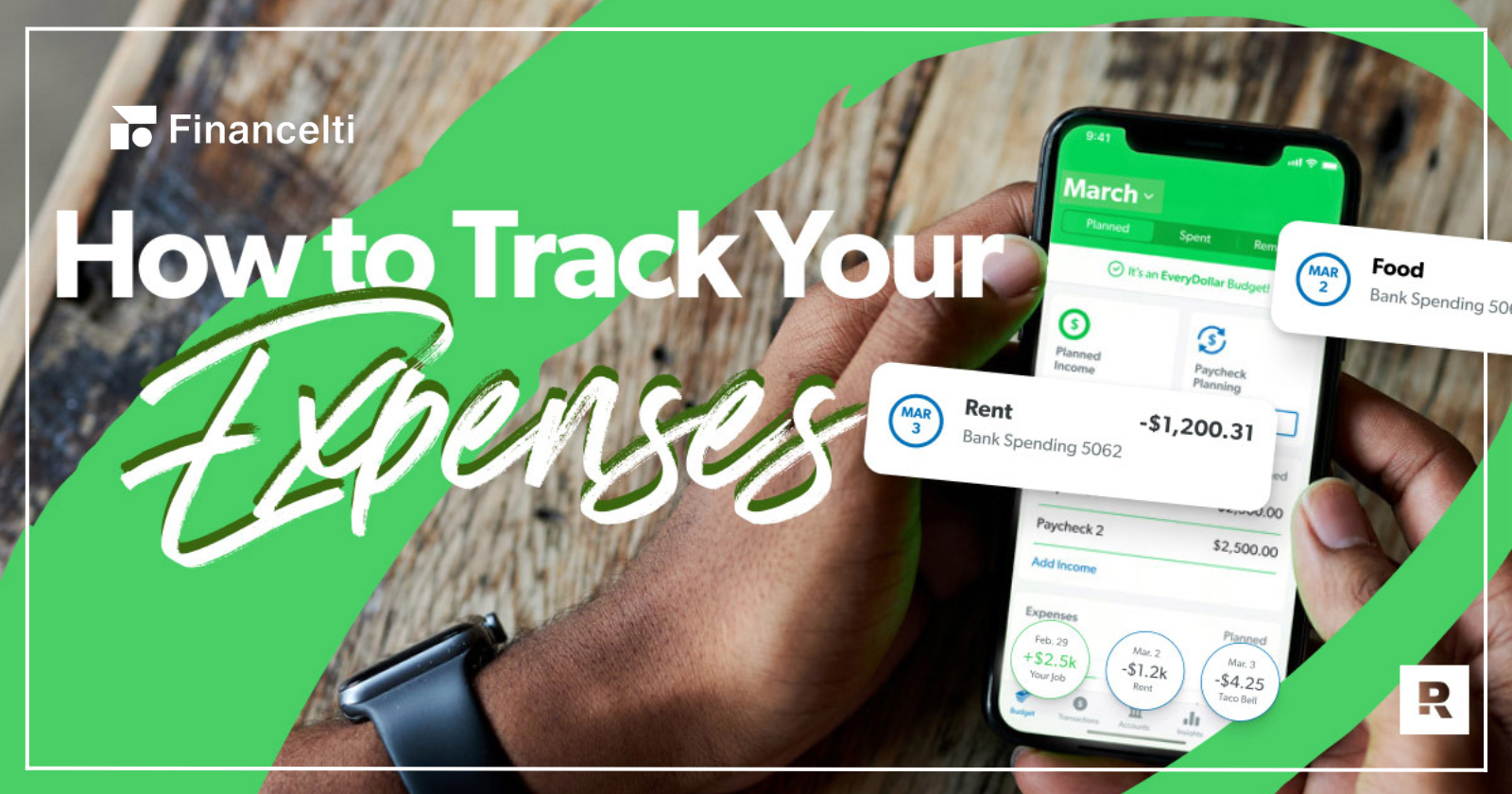Table of Contents
The importance of tracking expenses and income for a household budget
As someone who has managed my household budget successfully for many years, I cannot stress enough the importance of tracking expenses and income. Keeping a close eye on your financial inflows and outflows is crucial for maintaining a healthy financial situation. By tracking your expenses and income, you gain a clear understanding of where your money is going and how much is coming in. This knowledge forms the foundation for creating a successful household budget that aligns with your financial goals.
Tracking expenses and income allows you to identify areas where you might be overspending or where you can cut back. It helps you make informed decisions about your finances and enables you to take control of your money. By knowing exactly how much you are spending on different categories such as groceries, utilities, entertainment, and more, you can allocate your resources more effectively and avoid unnecessary debt. It also provides you with a sense of accountability and helps you stay disciplined in your spending habits.
Common household budgeting challenges
While tracking expenses and income is essential for effective budgeting, it is not without its challenges. One common challenge is the lack of awareness about where your money goes. Many people find it difficult to keep track of their daily expenses and end up losing sight of their financial situation. Another challenge is the lack of discipline in maintaining a budget. It can be tempting to overspend or neglect tracking expenses, especially when faced with impulsive buying decisions or unexpected expenses.
Moreover, some individuals may struggle with finding the right budgeting approach that works for them. Each person’s financial situation is unique, and what works for one may not work for another. This can lead to frustration and a sense of failure when attempting to budget effectively. However, by understanding these challenges and implementing the right strategies, you can overcome them and achieve financial stability.
Household budgeting tools and apps
Fortunately, in today’s digital age, there are numerous household budgeting tools and apps available to simplify the process of tracking expenses and income. These tools offer features such as expense categorization, automatic transaction syncing, and budgeting goal setting. They provide a convenient way to monitor your finances and offer insights into your spending patterns.
Some popular household budgeting tools include Mint, YNAB (You Need a Budget), and Personal Capital. These platforms allow you to link your bank accounts and credit cards, automatically track your transactions, and generate reports to analyze your spending habits. They also provide budgeting tips and personalized recommendations based on your financial goals.
Expense tracking methods and strategies
In addition to using budgeting tools and apps, there are various expense tracking methods and strategies you can employ to stay on top of your finances. One effective method is the envelope system, where you allocate a specific amount of cash to different expense categories and place the money in separate envelopes. This helps you visually see how much you have left for each category and prevents overspending.
Another strategy is to keep a detailed expense journal or spreadsheet. This involves manually recording each expense you make, categorizing it, and calculating your total spending periodically. While it may require more effort, this method allows for a higher level of customization and control over your budgeting process.

Moreover, it is essential to review your expenses regularly and identify areas where you can cut back. Look for recurring expenses that you can reduce or eliminate, such as subscription services or dining out. Be mindful of your discretionary spending and prioritize your needs over wants. By adopting these strategies, you can optimize your expense tracking and make your budget more efficient.
Income tracking methods and strategies
Tracking your income is just as important as tracking your expenses. It provides a complete picture of your financial situation and helps you plan for the future. Start by listing all your sources of income, including your salary, freelance earnings, investment returns, and any other income streams. Calculate your total monthly income and compare it to your expenses to determine your cash flow.
To track your income effectively, consider using a dedicated bank account solely for your income. Set up automatic transfers from this account to your expense account to ensure that your bills are paid on time. Regularly monitor your income deposits and reconcile them with your expected earnings. This way, you can identify any discrepancies and address them promptly.

Additionally, consider creating a separate savings account to allocate a portion of your income towards emergency funds or long-term financial goals. By tracking your income and setting aside savings, you can build a strong financial foundation and prepare for unexpected expenses or future investments.
Creating a successful household budget
Now that you understand the importance of tracking expenses and income, as well as the challenges involved, it’s time to create a successful household budget. Start by setting clear financial goals, both short-term and long-term. These goals can include paying off debt, saving for a down payment on a house, or building an emergency fund. Having specific targets will provide you with motivation and help you prioritize your spending.
Next, gather all your financial documents, such as bank statements, bills, and pay stubs. Analyze your expenses and income from the past few months to identify any patterns or areas for improvement. Categorize your expenses into fixed (e.g., rent, utilities) and variable (e.g., groceries, entertainment) to get a comprehensive overview.
Using the information gathered, create a detailed budget plan that includes all your income sources and expense categories. Allocate a specific amount for each category, making sure to leave room for savings and unexpected expenses. This way, you can ensure that your income covers your expenses while leaving room for financial growth.
Tips for effectively tracking expenses and income
To effectively track your expenses and income, there are some additional tips and best practices to keep in mind. Firstly, be consistent and make it a habit to record your expenses and income regularly. Set aside a specific time each week or month to update your budget and review your finances. This consistency will help you stay organized and prevent any surprises.
Secondly, automate your expense and income tracking as much as possible. Utilize the features provided by budgeting tools and apps to sync your transactions automatically. This will save you time and reduce the chances of missing any expenses or income.
Thirdly, consider using cash for certain expense categories. While credit cards offer convenience, using cash can help you stay within your budget and avoid unnecessary debt. By withdrawing a specific amount for categories like groceries or entertainment, you can physically see how much you have left and make more conscious spending decisions.
Budgeting for specific categories – groceries, utilities, entertainment, etc.
When creating your household budget, it is crucial to allocate appropriate amounts for specific expense categories. Groceries, utilities, and entertainment are common categories that require careful consideration.
For groceries, analyze your past spending patterns and set a realistic budget. Consider planning your meals in advance, making a shopping list, and looking for sales or discounts to stretch your budget further. By being mindful of your grocery expenses, you can reduce food waste and save money.
Utilities, such as electricity, water, and internet bills, are essential expenses that can vary each month. Review your previous bills and calculate an average amount for each utility. Be mindful of your energy consumption and explore ways to reduce your usage, such as using energy-efficient appliances or adjusting your thermostat.
Entertainment expenses can quickly add up if not monitored closely. Set a limit for how much you can spend on activities such as dining out, going to the movies, or attending events. Look for free or low-cost alternatives, such as exploring local parks or hosting game nights at home. By budgeting for entertainment, you can enjoy leisure activities without compromising your financial goals.
Reviewing and analyzing your budget
Regularly reviewing and analyzing your budget is key to its success. Set aside time each month to assess your expenses and income and compare them to your budget plan. This will help you identify any discrepancies, overspending, or areas where you can make adjustments.
When reviewing your budget, ask yourself the following questions:
- Did I stay within my allocated budget for each expense category?
- Were there any unexpected expenses that I need to account for?
- Did I meet my savings goals?
- Are there any areas where I can cut back or optimize my spending?
By answering these questions honestly, you can make informed decisions about your budget and make any necessary adjustments to achieve your financial goals.
Household budgeting tips and best practices
In addition to tracking expenses and income, there are several tips and best practices to consider for successful household budgeting:
Emergency funds: Set aside a portion of your income for emergency funds. Aim to save three to six months’ worth of living expenses to provide a safety net in case of unexpected events or emergencies.
Debt management: Prioritize paying off high-interest debts to save money on interest payments. Consider using the snowball or avalanche method to tackle your debts systematically.
Regular check-ins: Schedule regular check-ins with your budget to ensure that you are staying on track. Use these check-ins as an opportunity to celebrate your progress and make any necessary adjustments.
Open communication: If you share finances with a partner or family members, maintain open communication about your budgeting goals and progress. This will help ensure that everyone is on the same page and working towards a common financial objective.
Financial education: Continuously educate yourself about personal finance and budgeting strategies. Attend workshops, read books, or follow reputable financial blogs to expand your knowledge and make more informed financial decisions.
By implementing these tips and best practices, you can establish a strong foundation for your household budget and achieve long-term financial success.
Conclusion
Tracking expenses and income is a fundamental aspect of creating a successful household budget. By monitoring your financial inflows and outflows, you gain control over your money and make informed financial decisions. Utilize household budgeting tools and apps, employ effective tracking methods and strategies, and allocate appropriate amounts for specific expense categories.
Remember to review and analyze your budget regularly, making any necessary adjustments to stay on track. Follow household budgeting tips and best practices to ensure long-term financial stability. By taking these steps, you can achieve your financial goals, reduce financial stress, and secure a prosperous future for yourself and your family.
Explore More Financing Knowledge at Financelti.





